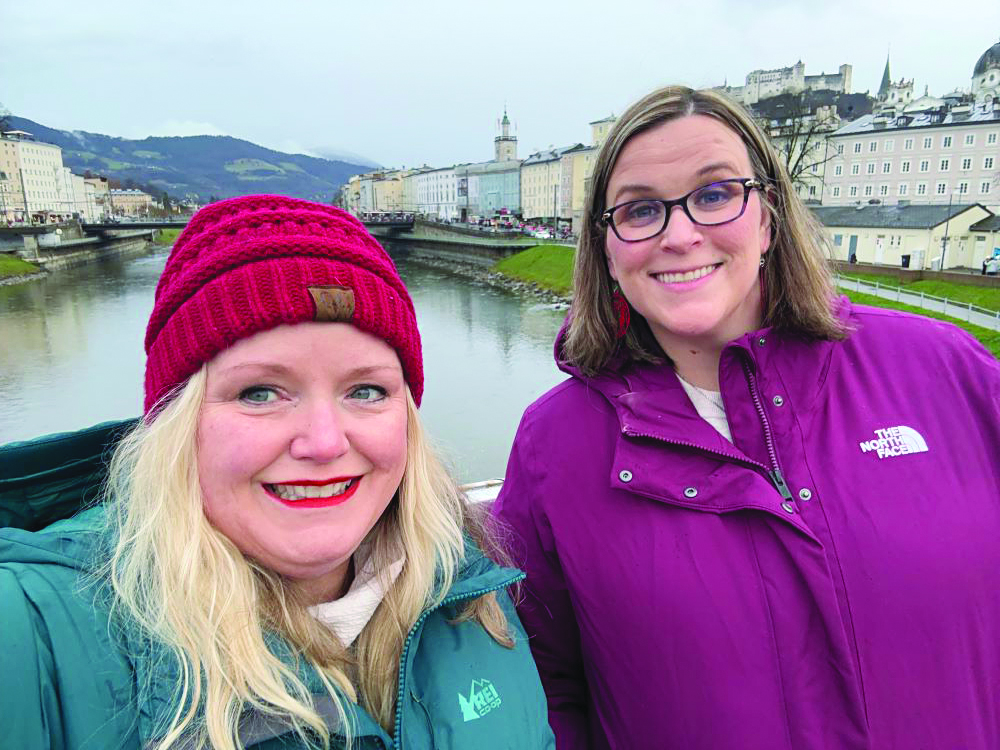When Emily Brashier, a divorced stay-at-home mom of two based in Edmond, was planning her birthday trip, she wanted an epic adventure, but one that wouldn't strain her finances.
After seeing inspiring videos on social media from the Portuguese island of Madeira, she knew she would have to spend more time than usual planning.

Americans spend almost as much time planning vacations as they do watching the entire “Lord of the Rings” trilogy, according to a new study that highlights how travel planning behaviors change across generations.
An in-depth survey of 2,000 U.S. travelers reveals that the average American spends approximately 18 hours researching and booking their trip, with cost considerations driving many decisions during the planning process.
The October 2024 study, conducted by Talker Research, found that financial concerns dominate travel planning, with 51% of respondents selecting destinations primarily based on price. When a Madeira trip deal was offered, including airfare, car rental and accommodation, Brashier said the cost was too high to pass up.
However, budget remained a concern for her and for the 44% of survey participants who expressed concern about possible overspending while traveling.
“I worry about overspending because my budget is tight,” Brashier said. “I look for places of natural beauty to get out and explore without having to pay entry or guides whenever possible. Occasional splurges can enhance the experience, however. I splurged on a hiking guide in Madeira and it was totally worth it.
The study identifies accommodation (21%), transportation (20%) and food as the top three areas where travelers fear overspending. Beyond financial concerns, travelers report significant stress related to packing (26%), general planning (23%), and potential travel disruptions (21%).
“I think stress is probably the strong word, but when you're traveling to a different climate than where you live, packing takes some effort,” said Holley Mangham of Oklahoma City, who recently traveled with a friend in Germany. and Austria for Christmas markets. “This plays into research. You need to think about what types of shoes to wear in Germany and Austria for the Christmas markets in November and December. What kind of coat will I wear and how will I pack it all?
Digital tools are reshaping planning
The digital landscape continues to transform the way Americans research and book travel, with 60% using search engines and 54% turning to online travel agency websites. Perhaps most notably, social media platforms, notably Instagram, now influence a third of Americans' travel decisions.
Brashier's own experience reflects this trend.
“Social media definitely inspires me to explore new places,” she said. “The hiking videos I saw in Madeira pushed it to the top of my bucket list, and they certainly lived up to my expectations. Without seeing these Reels, I wouldn't have known where to start.
Research suggests that the intensity of travel planning varies widely depending on the type of destination and purpose. Some trips require less planning while others can get quite complicated.
“It depends on the nature of our trip,” Brashier said. “When we go to the beach, there is usually very little planning because our plans revolve around spending time at the beach. While simpler trips work well when traveling with kids, I have planned a few activities when from our very successful trip to Branson that didn't happen. It doesn't require too much planning time.
The study also found that researching and booking local experiences, attractions and cultural events consumes the largest portion (22%) of travel planning time. This emphasis on experiential elements reflects a broader trend toward seeking authentic and meaningful travel experiences, albeit within budgetary constraints.
“I'm usually the trip planner when I go on a trip, but my friend is also the trip planner, and she did most of the planning,” Mangham said.
“We have similar travel styles and similar things we wanted to do. She went in and looked for restaurants where we could eat and we had dinner reservations every night. We didn't spend a lot of time asking ourselves, “Okay, well, what looks good to you?” » We made our plans months in advance, and that helped.
As Americans navigate the changing landscape of travel planning in 2025, traditional challenges of time and money remain top priorities. Whether scrolling through Instagram Reels for inspiration or spending 18 hours meticulously planning an itinerary, travelers continue to face a delicate balancing act between their wanderlust and their wallet.


